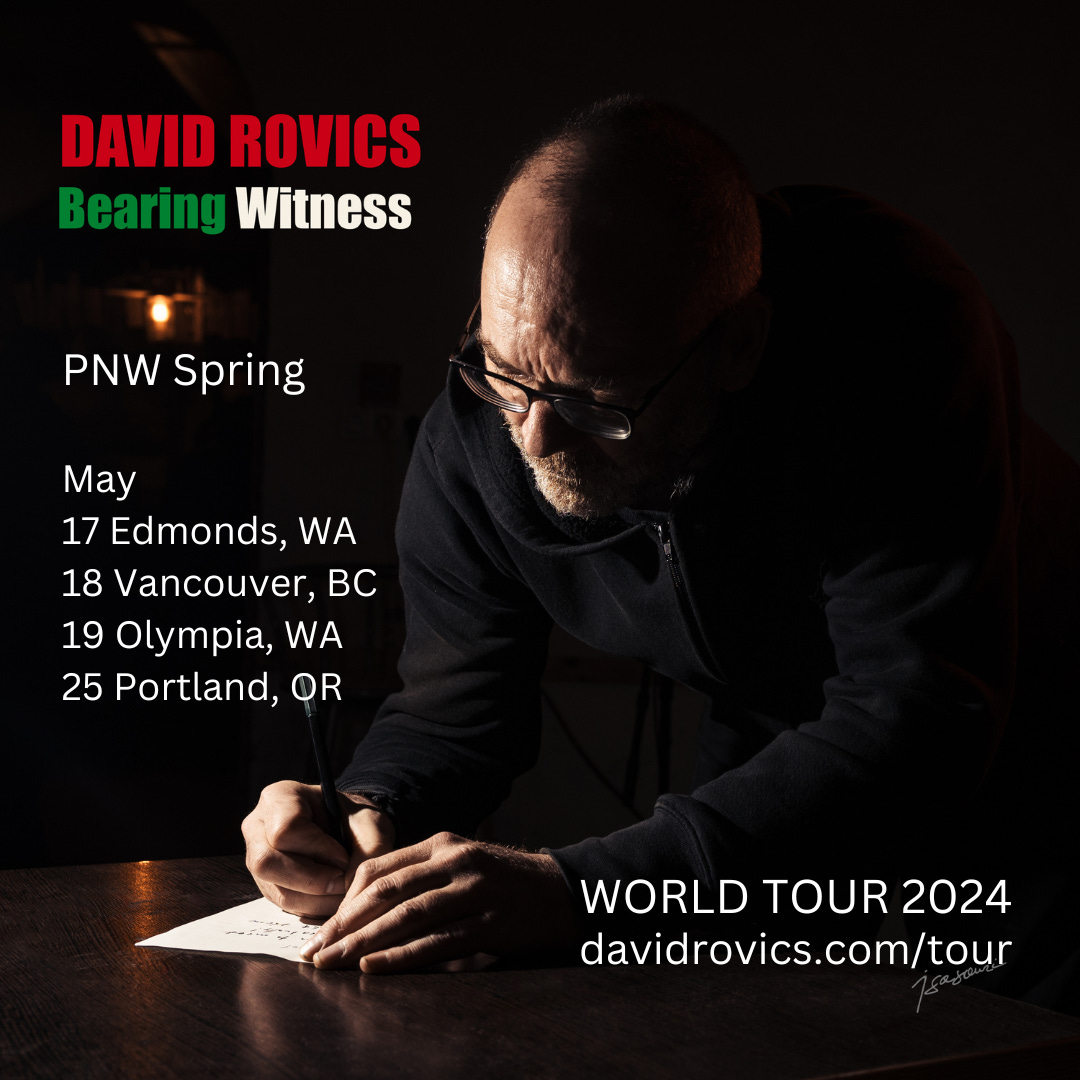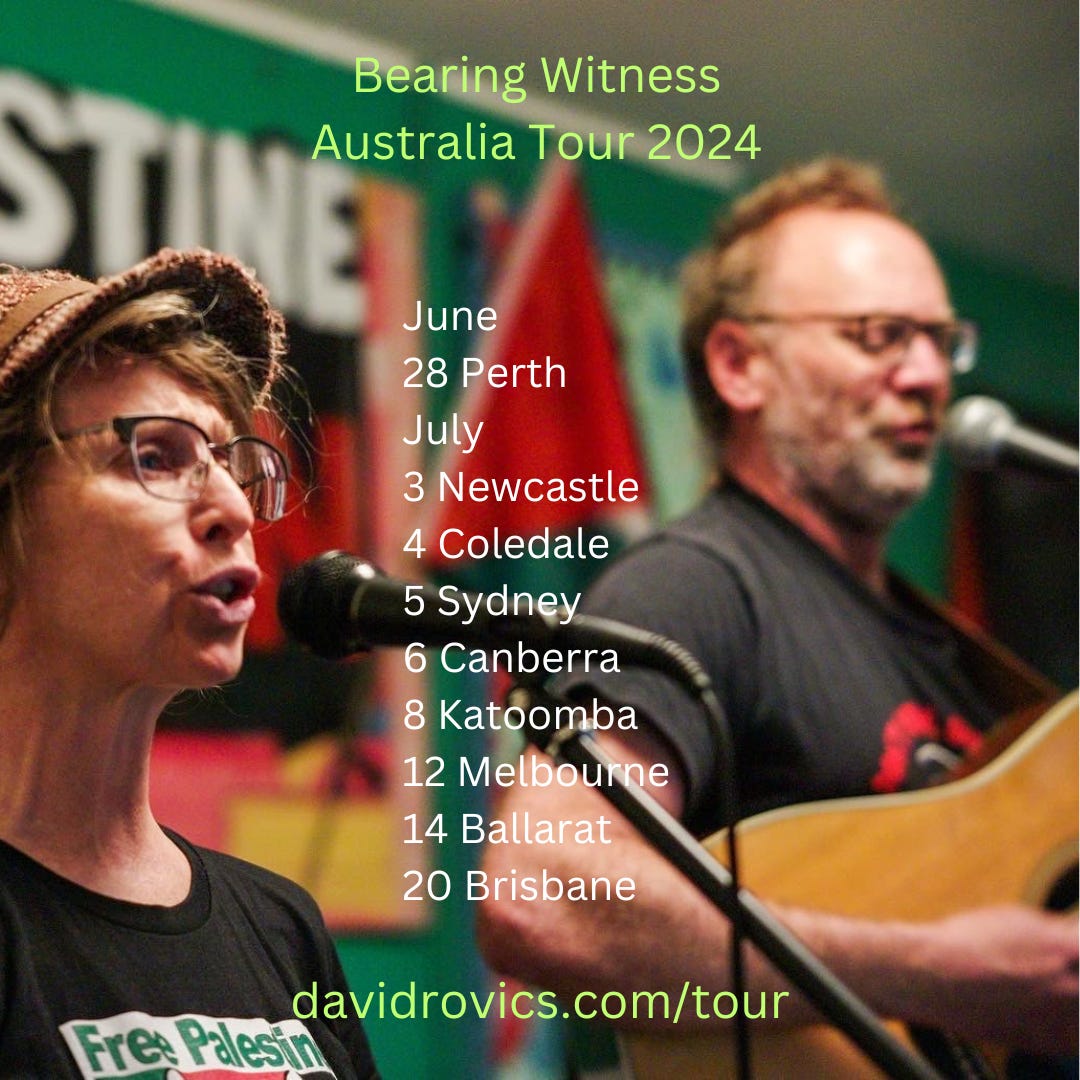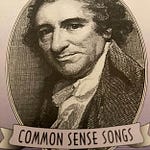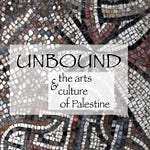As the war for the narrative of the war heats up to heretofore unknown extents for the western world in particular, the strategies for controlling the narrative become more and more evident. Between the US and Israel, I don't know which one is the tail and which one is the dog, but the narrative we're all supposed to believe seems to be the same either way. And it seems very evident that maintaining control of the narrative is of the utmost importance to the power structure in the US, the UK, Germany, and many other parts of the world.
In much of the world we can see absolutely massive outpourings of support, with a sustained seven months now of millions of people in the streets, mostly outside of what we call the west, but including within the western countries. In the United States, where Israel finds its most important political and military ally and funder of war crimes, the outpouring has been far more muted.
In many countries where the population veritably pours into the streets to show solidarity with the Palestinians, to the extent that there is criticism for their own governments involved with these protests, it is to say that they should do more than they may already be doing to stand with the Palestinians. Nothing about these protests is in opposition to the societies they're in, because the whole society, pretty much, supports the Palestinian struggle.
In the US, on the other hand, until the campus movement took off and started getting mass media coverage, in most cities if more than a few hundred people were in the streets, that was considered a big crowd. If there was a crowd bigger than this, it was almost inevitably in a major city with a large Jewish and/or Muslim population.
On the streets of Portland, while students and other folks were occupying a library on the campus of Portland State University, in solidarity with Gaza, as I was hanging around I heard many passersby conversing with each other, and it was abundantly clear that most of them were not sympathetic with what was going on here, and did not understand the context.
On social media, my observation has been there are certain groups and individuals with large followings who can drum up a lot of reposts and discussion about Palestine, but posts that don't get shared by one of those accounts tend not to do well. There's always the likelihood of algorithmic throttling and shadowbans and all that, but to some extent it's also evident what's going on when you see the numbers of people who saw or liked a post, relative to the tiny fraction of that group who dared to share the post.
What explains the relative silence on the streets of the US, compared with so many other countries? Some of the factors I think are big ones are also factors held in common elsewhere, but with others, that's less the case. Taken as a whole, I think what we end up with is a mind control experiment with more than 300 million participants, mostly unwilling and unwitting.
The five basic pillars of social control that I see operating on overdrive in relation to the Gaza war and the control of the narrative around it fall into the categories of mass media, social media, left capture, political persecution, and violent repression.
Mass Media
The western media varies from the reasonable-sounding to the rabid. Some of it tries to give us at least some impression of the horrors Israel is wreaking upon Gaza, and sometimes even the West Bank as well. But generally the focus is on making sure we continue to humanize the suffering of Israelis, even if in order to do so we have to keep on coming back to last October, whereas the suffering of Palestinians beneath indiscriminate Israeli bombardment and an imposed famine has been a constant ever since October.
Another major focus has been the supposed rise in antisemitism everywhere. Even recently on Al-Jazeera, which usually does some of the best coverage of this crisis, a newscaster was repeating the line that pro-Palestinian protesters somewhere "resorted to anstisemitic chants," without telling us what they were. I'm especially curious, because in all the cases I've heard of, the chants in question have only been anti-Jewish if you use a pro-Israel hate group's definition of the concept, such as phrases like "from the river to the sea."
At least until the campus protests began, the overriding tactic of the mass media in the US in particular has been to pretend nothing is happening. What so many countries are calling a genocide -- for which Israeli leaders may soon have international arrest warrants out on them, in which hundreds of people have been killed under Israeli bombardment on a typical day, for the past seven months -- is often not headline news, often not even a story in today's broadcast.
Whether we're talking about "liberal" or "conservative" outlets, there is a tendency to take Israeli government talking points about the war and the preferred narrative around it, and continually drive those talking points home with every story on the subject. "There was a ceasefire on October 6th." "Hamas wants to kill all the Jews." "Opposition to the war is at least likely antisemitic."
Social Media
If the mass media is overwhelmingly disinformation with a liberal or conservative bias (and it is), social media is like a form of algorithmic brainwashing, along with its many other problems.
Whether it's educated guessing or not, we're all basically just guessing at what the algorithms are, and what they're doing, aside from the few who might have the overview. Conflict and sensationalism reigns, it's systematically pushed up in the algorithms, just as content related to Palestine is suppressed, or content related to world events generally. It's not like censorship, rather, it's much more sophisticated than that. As with the mass media, through these more subtle, algorithmic systems of control, any story, any angle, can be emphasized or de-emphasized, and this is very much happening, it's not conjecture, it's how the platforms work.
It would also be hard to over-emphasize the potential impact of pro-Israel trolling activities. Since I became a target in February, it has been really eye-opening. Just in the past 30 days, Facebook informed me in a notification, I got over 27,000 comments on my Page. What Facebook's notification bot doesn't seem to know is at least 26,000 of those comments were from pro-Israel trolls.
My case is extreme, to be sure. Most people don't get targeted with such a firehose of propaganda like that, so it's abundantly obvious what's going on. But that, in fact, is far more dangerous.
You can see what I'm talking about if you look at one of my posts on Facebook that doesn't get deluged with thousands of pro-Israel commenters. Look at one of the ones that got a few positive comments from friends and fans like usual, and then the pro-Israel troll comes in with their views. In that context, they can often be taken seriously, and people engage with them with good intentions, sometimes having huge debates that go on forever.
What these untold thousands of operatives are doing to try to keep control of the narrative on platforms like Facebook is a seriously large campaign, bound to have all kinds of impact, along with the many other mechanisms the platforms can employ with the same aims.
Left Capture
While the cause in opposition to genocide and in support of the Palestinians is broadly popular around the world, it's probably most popular in countries with large Muslim populations, such as Yemen or Jordan or, to a lesser but still significant extent, England. This is understandable; people who identify as Muslim naturally identify with others who do, and they also may identify with Palestinians because of their own experiences with colonization or with the legacy of colonialism, or their own background involving friends or family who lived through Israel or America's wars.
For similar reasons, in countries like the US, or parts of the US, that have a large Jewish population, there is a very disproportionately large support for the Palestinian cause. Again because of identity, because of being from a background where there is often a strong affiliation with the self-proclaimed Jewish state, and because of the Jewish history of persecution, disproportionate numbers of Jews feel compelled to speak out against this genocide, specifically because it is a genocide being carried out by Jews.
All of this makes sense to me. What doesn't make any sense is the silence of so much of the rest of the population, specifically in the United States. There is no question to me where this silence comes from. It is especially those who are not part of the small Jewish or Muslim minorities in this country, who are won over by the notion that because they don't perceive themselves to be of the identities involved with this conflict, they should just stay out of it, lest they get attacked for being anti-Jewish or anti-Muslim.
The phenomenon I'm talking about here is what I mean by "left capture." What used to be a left that was driven largely by concepts such as international solidarity and a global working class alliance against the plutocratic imperialists has become myriad fractured gatherings of people who identify primarily with other members of increasingly narrowly-defined social or political groups, and who are reticent about having opinions on subjects which they feel they may be unqualified to talk about, as they perceive themselves to be a non-member of any of the relevant identities involved with the conflict.
Political Persecution
Elise Stefanik, in her role as the new Joe McCarthy, is going after what she mis-identifies as antisemitism just as McCarthy was labeling everyone and their grandmother a communist and attacking them for being one. Looking back, McCarthyism seems like some kind of bizarre comedy, but it really happened, and in the process, many lives were ruined and careers destroyed. The same thing is happening now, as can be seen from the numbers of university presidents who have been forced out of their jobs in the past few weeks, along with many more less media-worthy purges of pro-Palestinian voices that have been taking place within academia and in other sectors of society.
For those from the UK, all of this is especially familiar, because of what people there went through, in the process of the pro-Israel forces within British society re-taking control of the Labor Party from its popularly-elected leader, Jeremy Corbyn. In England, there have been many people purged for their nonexistent antisemitism, and as with those under attack for standing up in the United States, in England, too, they are disproportionately people of Jewish background being accused of these things.
Violent Repression
In the face of severe and severely misinformed criticism from both Democratic and Republican political leaders nationally and in states like New York, Texas, and elsewhere, university administrations have been inviting in the armed enforcers of the law all over the place.
Violent repression can backfire. It can be the case that a lot more people come into the streets to support those being attacked, and we've seen this happen. But especially if the tactic of violent repression is sustained, it can certainly succeed in stopping a movement in its tracks. Despite the proclamations by many revolutionaries over the generations that the revolution is unstoppable, you can't kill an idea, etc., it's not really true.
History shows that unless you have the kind of social movement that involves large numbers of people from the ranks of the police and the military abandoning their posts and joining the movement, your movement can be violently repressed into insignificance, if doing that is seen by the leaders of the government to be important enough a goal to pursue.
If you want to change the world, first you have to know what's going on. And what's going on here is a coordinated, bipartisan, multi-front attack on humanity, human rights, human decency, and reality itself.
EUGENE: I’ll be playing some music on the U of O campus at 2:30 pm TODAY!
I have more free dates in Australia, especially between Brisbane and Newcastle, or between Canberra and Melbourne.
I have a couple of dates booked in August in northern California, and a couple more would be very good!













